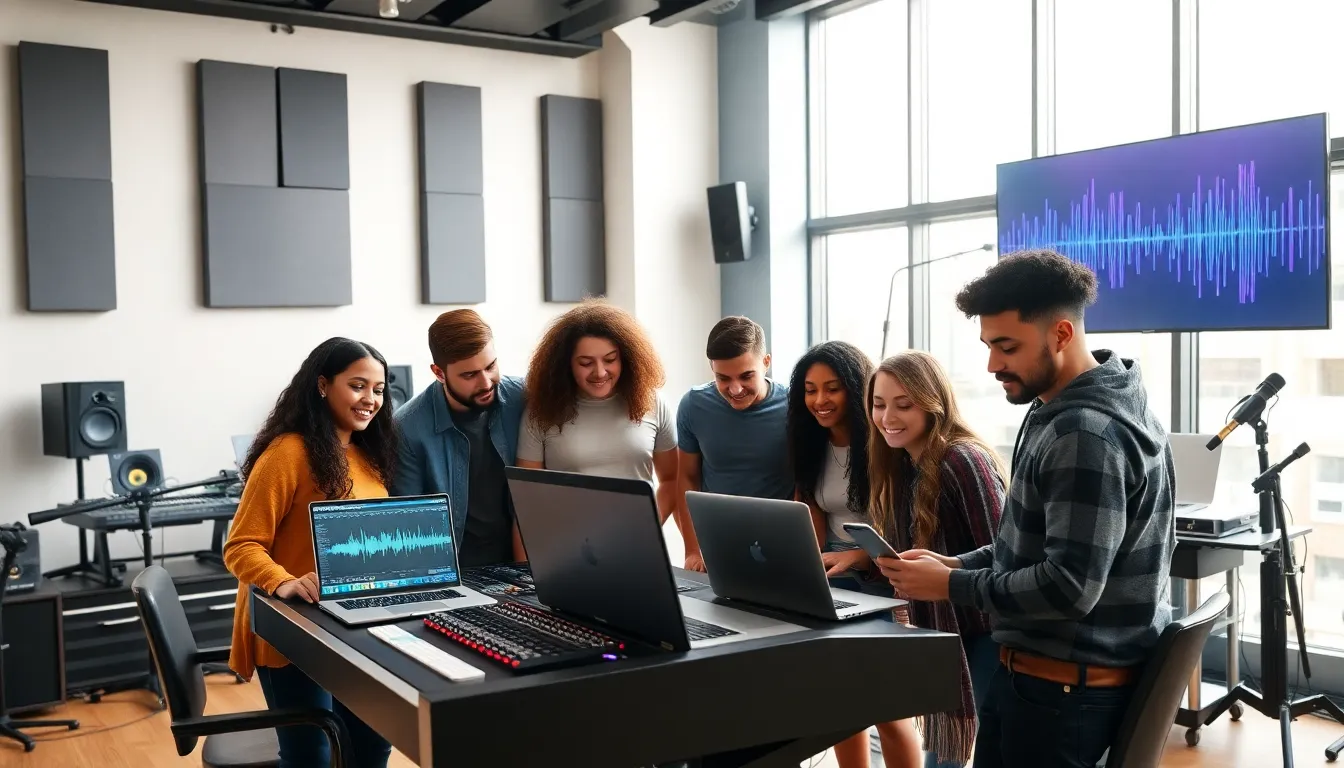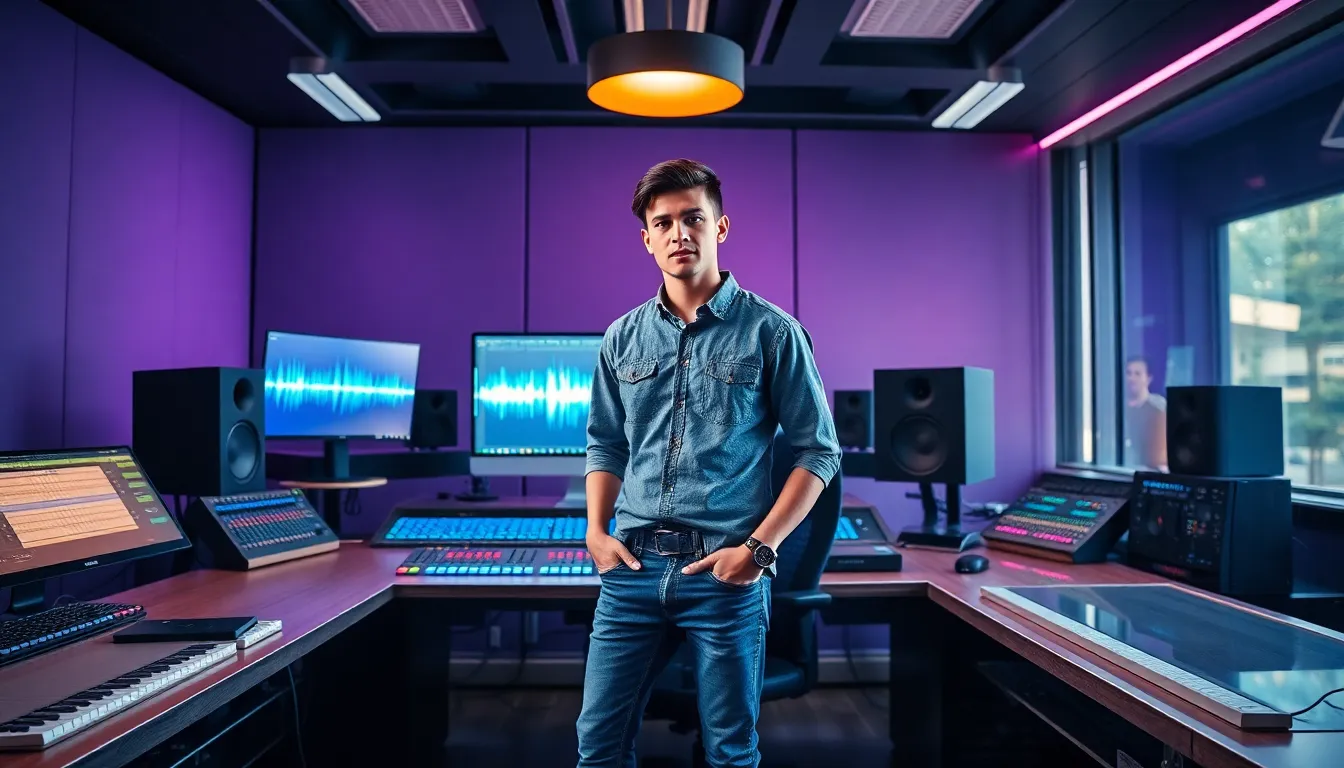Finding the right music production courses nearby can feel like searching for a needle in a haystack, especially if your idea of “local” is anything but traditional. Luckily, we’re diving deep into the world of song creation, sound engineering, and beat-making, all while keeping it as fun as a sing-along at a karaoke night. If you’re wondering how to transform your musical dreams into reality, buckle up. The journey from bedroom producer to chart-topping artist starts right here. Let’s groove through this guide and help you find the perfect course for you.
Music Production Courses Near Me

Types of Music Production Courses
When it comes to music production courses, variety is the spice of life. You’ll find courses tailored to different genres, skill levels, and focuses.-
- Introductory Courses: Perfect for beginners, these often cover the basics of music theory, software usage, and essential techniques. If you can barely tell the difference between a treble and a bass clef, this is where you’ll want to start.
-
- Genre-Specific Courses: From hip-hop to classical, courses tailored to specific genres can help you hone in on the nuances that make each style unique. Want to produce that catchy pop hit? There’s a course for that.
-
- Advanced Production Techniques: For those who have a bit of experience under their belts, advanced courses can dive deep into mixing, mastering, and complex production techniques.
-
- Songwriting Workshops: If you’re leaning more towards creating your tunes and lyrics, workshops focusing on songwriting skills might be your cup of tea.
-
- Virtual and Online Courses: In this digital age, many platforms offer courses remotely, allowing students to learn at their own pace, often with interactive materials and community support.
Criteria for Choosing the Right Course
Choosing the right music production course can feel overwhelming, but focusing on a few key criteria can make it much simpler.-
- Instructor Qualifications: A course is only as good as its instructor. Look for courses led by industry professionals. Their experience can provide invaluable insights that textbooks simply can’t.
-
- Course Content: Examine the syllabus. Does it cover your desired topics comprehensively? Are there hands-on projects that encourage active learning? Look for courses that emphasize practical skills.
-
- Flexibility and Format: Consider your schedule. Do you prefer the structure of an in-person class, or does the idea of online learning at your own pace sound more appealing? Choose a format that works for you.
-
- Student Reviews: Check out testimonials from past students. Their experiences can offer currents insights into what you can expect and how effective the course really is.
-
- Cost vs. Value: Carefully weigh the investment against what you’ll gain. Higher-priced courses may offer more resources, mentorship opportunities, or industry connections that can pay dividends later.
Top Places to Find Music Production Courses
Now that the groundwork is laid, where exactly can aspiring producers find these coveted music production courses?-
- Local Community Colleges: Many community colleges offer affordable courses that cover the essentials. They often have on-site studios that let you get hands-on experience.
-
- Music Schools: Specialized music schools tend to have in-depth programs featuring comprehensive curricula and expert instructors in music production.
-
- Online Learning Platforms: Websites like Coursera, Udemy, and MasterClass offer a plethora of courses ranging from beginner to advanced levels, often with flexible schedules.
-
- Social Media and Forums: Keeping an eye on platforms like Facebook groups or Reddit can provide insights on local workshops or upcoming courses that may not be heavily advertised.
-
- Professional Studios: Some studios offer workshops and short courses that provide a highly specialized learning environment. This can be a golden opportunity to network and gain industry exposure.
Online vs. In-Person Courses
When weighing the options between online and in-person courses, each has distinct advantages and disadvantages. Online Courses: Flexible, often allowing students to learn at their own pace. They can fit around busy schedules and are typically more affordable, but they require self-discipline and may lack personalized support. In-Person Courses: These courses often provide immediate feedback and immersive experiences. Students benefit from direct interactions with instructors and peers, fostering a collaborative learning environment. But, they usually demand a more significant time commitment and can be pricier. Eventually, the choice depends on individual learning styles, schedules, and budget constraints.Investment and Resources
Investing in a music production course can seem daunting, but considering it an investment in yourself is crucial. The financial outlay varies tremendously based on the institution, duration of the course, and additional resources provided.-
- Tuition Fees: From free online courses to expensive specialized programs, tuition fees can range significantly. More expensive courses often provide a wealth of resources that can justify the cost.
-
- Software and Equipment: Depending on the course, students may need access to specific music production software or hardware. Be sure to factor this into overall costs, as having the right tools can be pivotal for hands-on learning.
-
- Time Commitment: Consider the time you can realistically dedicate. A course that demands significant time might offer immersion, but balance is essential to keep it enjoyable.
-
- Networking Opportunities: Consider courses that offer connections with industry professionals, as these can lead to internships, collaborations, or even future job offers.


